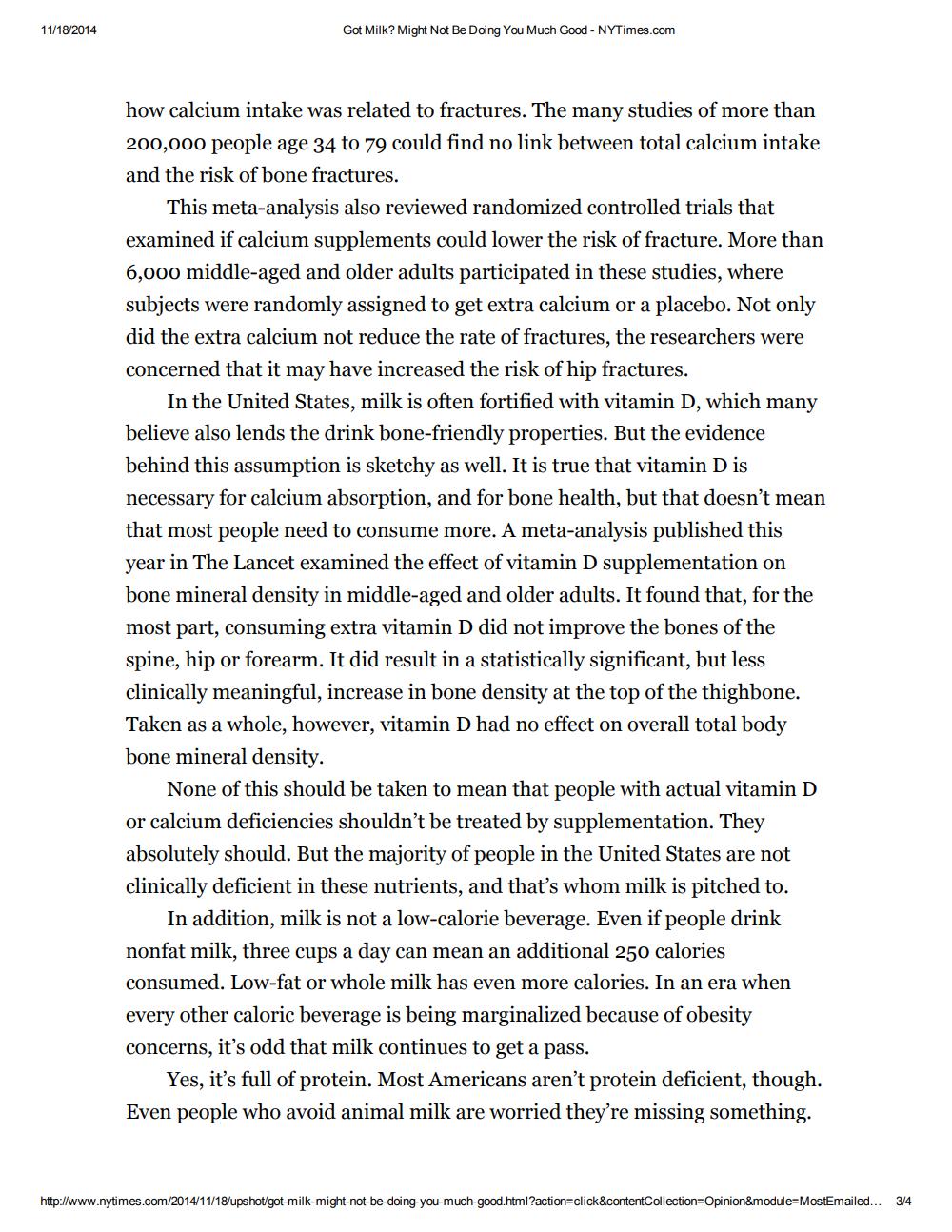Book Title: Got Milk Might Not Be Doing You Much Good Author(s): Aaron E Carroll, David Leonhardt Publisher: ZZZ Unknown View full book textPage 3
________________ 11/18/2014 Got Milk? Might Not Be Doing You Much Good - NYTimes.com how calcium intake was related to fractures. The many studies of more than 200,000 people age 34 to 79 could find no link between total calcium intake and the risk of bone fractures. This meta-analysis also reviewed randomized controlled trials that examined if calcium supplements could lower the risk of fracture. More than 6,000 middle-aged and older adults participated in these studies, where subjects were randomly assigned to get extra calcium or a placebo. Not only did the extra calcium not reduce the rate of fractures, the researchers were concerned that it may have increased the risk of hip fractures. In the United States, milk is often fortified with vitamin D, which many believe also lends the drink bone-friendly properties. But the evidence behind this assumption is sketchy as well. It is true that vitamin D is necessary for calcium absorption, and for bone health, but that doesn't mean that most people need to consume more. A meta-analysis published this year in The Lancet examined the effect of vitamin D supplementation on bone mineral density in middle-aged and older adults. It found that, for the most part, consuming extra vitamin D did not improve the bones of the spine, hip or forearm. It did result in a statistically significant, but less clinically meaningful, increase in bone density at the top of the thighbone. Taken as a whole, however, vitamin D had no effect on overall total body bone mineral density. None of this should be taken to mean that people with actual vitamin D or calcium deficiencies shouldn't be treated by supplementation. They absolutely should. But the majority of people in the United States are not clinically deficient in these nutrients, and that's whom milk is pitched to. In addition, milk is not a low-calorie beverage. Even if people drink nonfat milk, three cups a day can mean an additional 250 calories consumed. Low-fat or whole milk has even more calories. In an era when every other caloric beverage is being marginalized because of obesity concerns, it's odd that milk continues to get a pass. Yes, it's full of protein. Most Americans aren't protein deficient, though. Even people who avoid animal milk are worried they're missing something. http://www.nytimes.com/2014/11/18/upshot/got-milk-might-not-be-doing-you-much-good.html?action=click&contentCollection=Opinion&module=MostEmailed... 3/4Page Navigation
1 2 3 4
